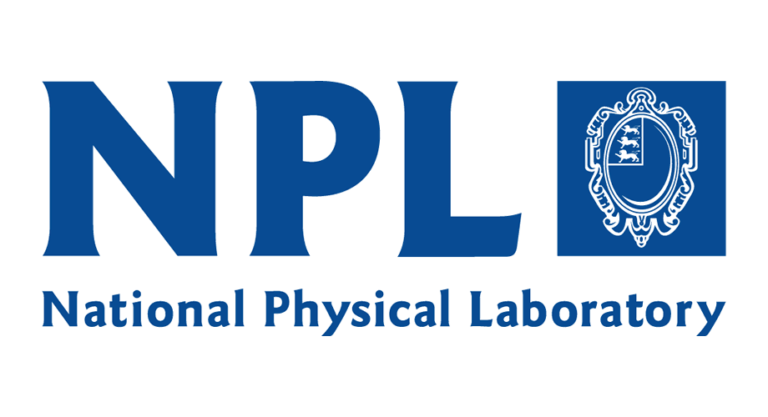Project Description
The Fraunhofer Centre for Applied Photonics (CAP) has several vacancies for exciting, varied and challenging applied R and D studentships in photonics, lasers and optical systems. We welcome applications from all students with the relevant qualifications – a strong undergraduate degree in Physics or Engineering with possible photonics or optoelectronics content.
About this studentship:
Detecting and identifying analytes is essential in fields like biomedicine, defence and security, environmental monitoring. While many techniques have been developed, their complexity and information output can limit practical use. Recent technological advancements allow for the miniaturization of laboratory instruments into compact, portable devices. This project aims to create a lab-on-chip platform that combines microsize LEDs (uLEDs) for miniature sensing assays with colloidal nanomaterials to enhance optical assay sensitivity.
The primary focus is on leveraging high-density, high-modulation bandwidth uLED arrays developed by the Institute of Photonics (IoP) at the University of Strathclyde. These customizable arrays feature compact uLED emitters integrated with CMOS drivers, allowing for precise control of illumination properties. Using these devices as excitation sources for optical assays, alongside detector arrays and microfluidic structures, enables advanced lab-on-a-chip sensing technology.
The secondary focus is on developing optical assays with improved sensitivity, using colour changes or spectral properties to detect analytes through colloidal inorganic nanoparticles and resonating structures.
This exciting opportunity to develop a lab-on-chip system builds on the Fraunhofer Centre’s spectroscopic work and the IoP team’s expertise in combining uLEDs and nanomaterials, bridging photonics and life sciences to create novel sensing modalities. The prospective student will engage in opto-mechanical, electronic, and spectroscopic instrumentation design and fabrication, as well as embedded instrument control and data extraction, while studying functionalized assays and microfluidic platforms.
About CAP:
The first of the highly regarded Fraunhofer Research Centres to be based in the UK, Fraunhofer CAP specialises in undertaking applied R&D in a range of photonics themes. Based at the University of Strathclyde’s Technology and Innovation Centre in Glasgow city centre, Fraunhofer CAP’s main remit is to be a key partner to UK companies in the development of state-of-the-art products and processes that will enhance their competitiveness; beyond this we are proud that our work brings benefits to health, environment and society. We work across many sectors including wind energy, quantum technology, space, medical, security.
Fraunhofer CAP offers a competitive edge when it comes to further career progression through the following:
- Work in a world-class, well-funded and well-appointed research hub, within the innovation district of Glasgow City Centre
- Learn from a talented team of international colleagues – through interaction with other projects and students
- Opportunity to develop commercial skills – business development, innovation, leadership through exposure to commercial project partners and programmes
- Wider opportunities to travel and present your research activities
- Access to 1000s of training courses through Udemy – personal and professional development
- 31 days holiday and 11 public holidays
We are a bright, engaging, welcoming, helpful and diverse team and want like-minded individuals who want to make a difference and really contribute. Your attitude and ambition are as important to us as any of the details below.
About IoP:
This work will be conducted in collaboration Dr. Laurand’s team at IoP. The team has demonstrated expertise in bottom-up self-assembly of colloidal nanomaterials, hybrid top-down fabrication methods, interfacing with uLEDs, and a wide range of material characterization techniques. They are ideally suited for this project, having already demonstrated the ability to fabricate microlasers and multifunctional supraparticles with blended nanomaterials for sensing. Their ongoing work includes the development of materials and devices for medical, quantum, and wearable technologies, as well as applications in optical communications and the green economy.
The IoP, part of the Department of Physics, is a centre of excellence in applications-oriented research at the University of Strathclyde. The IoP’s key objectives are to do excellent research and bridge the gap between academic research and industrial applications and development in the area of photonics. The IoP is located in the £100M Technology and Innovation Centre on Strathclyde’s Glasgow city centre campus, at the heart of Glasgow’s Innovation District, where it is co-located with the UK’s first Fraunhofer Research Centre. Researchers at the IoP are active in a broad range of photonics fields under the areas of Photonic Devices, Advanced Lasers and Neurophotonics; Strathclyde Physics is a member of SUPA, the Scottish Universities Physics Alliance.
The University of Strathclyde has, in recent years, been the recipient of the following awards: The Queen’s Anniversary Prizes for Higher and Further Education (2019, 2021 and 2024); The Times Higher Education UK University of the Year (2012 & 2019) and The Times and The Sunday Times Scottish University of the Year (2020). Particularly relevant to the IoP among these is the 2024 Queen’s Anniversary Prize in recognition of Strathclyde’s excellence in research and innovation in the field of Photonics.
This applications-focused EngD project is centred on developing a lab-on-chip platform based upon the combination of the uLED technology with microfluidics and functionalised nanoparticles. The project will be led between Photonic Materials and Devices group at the Institute of Photonics of the University of Strathclyde, and the Fraunhofer Centre for Applied Photonics in Glasgow – the first Fraunhofer centre in the UK.
Such a collaboration plays to the strengths and aspirations of both institutions who share a common desire to contribute to the knowledge-based economy through high-technology innovation.
The applicant will work in a vibrant, collegiate and supportive environment with access to state-of-the-art laboratory infrastructure and scientific expertise.
Fraunhofer UK Research Ltd are committed to equality, diversity and inclusion in the workplace. We would be happy to have informal discussions with candidates about flexible working options.
https://www.fraunhofer.de/en/about-fraunhofer/corporate-responsibility/hr-management/diversity-management.html
CDT Essential Criteria
A Masters level degree (MEng, MPhys, MSc) at 2.1 or equivalent.
Desire to work collegiately, be involved in outreach, undertake taught and professional skills study.
Project Essential Criteria
We hope for candidates who are sociable and professional, have strong oral and written communication skills with the demonstrable ability to work collaboratively and independently. Please see https://www.cap.fraunhofer.co.uk/en/careers.html for further details.
This project will bridge through the fields of physics, electronic engineering, and biochemistry, so the candidate must have a strong interest in these fields and desire to set-up experimental systems and put theory into practice.
Project Desirable Criteria
Knowledge/expertise in programming languages, colloidal/solution-based inorganic or organic materials and setting up optical systems.
The CDT
The CDT in Applied Photonics provides a supportive, collaborative environment which values inclusivity and is committed to creating and sustaining a positive and supportive environment for all our applicants, students, and staff. For further information, please see our ED&I statement: https://bit.ly/3gXrcwg.
Forming a supportive cohort is an important part of the programme and our students take part in various professional skills workshops, including Responsible Research and Innovation, and attend outreach training.









